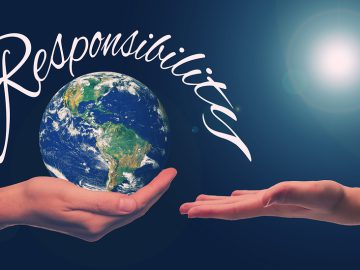Kicking off our AI For Drummies Buyer’s Guide, our no-bull Q&A answers five of the biggest questions about AI, explaining what you need to know now and why you need to care.
Marketing moves fast – and AI perhaps even faster. The result? A sector playing catch up with its potential and grappling with the latest need-to-know.
In the age of AI experimentation, 56% of marketers are still feeling their way around the tech, according to a recent LinkedIn poll of The Drum’s community. And one in 10 admit to feeling ‘overwhelmed.’ We hear you. So take five and check out the industry’s ultimate AI crib sheet.
Want to go deeper? Ask The Drum
1. Do I actually have the right skills to get the most out of AI?
On an individual level, you need a sense of curiosity – a hunger to ask the right questions of AI again and again to get the answers you need. And keep asking them, so you can keep pace with AI’s constant and (true fact cliché alert) fast-moving evolution.
Don’t be a tourist: learn the language. Understanding prompt engineering is what makes AI a superpower, not just a tool. Many of the big tech players offer free advice resources or more in-depth training. And don’t forget to build expertise in data ethics and brand safety.
Critical thinking is also key. AI doesn’t replace judgment; it sharpens it. You should be guiding it to do the heavy lifting tasks on your to-do list, so you’ve got more space to think more creatively and strategically.
Also, sharpen your head for numbers. You need data literacy to question, interpret and act on the AI-powered performance metrics, customer insights, predictive analytics and accuracy or bias indicators that dominate a modern marketer’s life.
In terms of skills at a team or organization-wide level, AI isn’t plug-and-play – it’s a cultural shift that needs to be driven by the top down. To win, your organization needs a collaboration-first mentality: siloed teams equal wasted AI potential. Build agile workflows because flexibility is essential to rapid AI integration. Empower innovative thinking and risk-taking to leverage AI creatively. And invest in collective data literacy – make it everyone’s business.
2. Is the industry really using AI to its fullest potential?
AI is marketing’s favorite buzzword, but let’s be honest: most marketers are barely scratching the surface. More than half aren’t using it in their work and many are stuck in an anxious no man’s land between fear and Fomo – fear that it’ll take their job and Fomo it could make them the best they’ve ever been. That’s a tense place to be.
True AI potential means predictive creativity, razor-sharp personalization and strategy informed by deep, data-driven insights. But for every brand leveraging AI to understand audiences better, 10 others are still stuck using it just for ad targeting.
Why the disconnect? Often, marketers lack the skills, culture or guts to fully integrate AI into decision-making. Worries about ethics and compliance are also big barriers, as are data privacy concerns. But, whatever the reason, until teams embrace AI as a strategic partner, not just a tech upgrade, they’ll never unlock its full, game-changing potential.
3. Is my brand safe or am I walking into an ethical nightmare?
Without safety guardrails, AI can quickly turn into a brand disaster. We’re talking guardrails like making sure that the datasets and AI models you use are safe and compliant with regulations, that you have and follow an organization-wide AI ethics and usage policy, and that when it comes to ad targeting, you’re using AI to ensure that ads are placed appropriately and in the right context for the brand and/or adjusting and optimizing campaigns as live issues arise.
Privacy scandals, data leaks and biased algorithms that perpetuate stereotypes and discrimination all lurk behind careless AI usage and risk brand reputation. Little wonder that 80% of brands have ‘serious concerns’ about how agencies might be using AI on their behalf.
These days, transparency is non-negotiable. From GDPR to California’s privacy laws, marketers face strict compliance pressures. And consumers are savvier than ever: they see through AI that feels invasive, unethical or creepy. Clearly communicating how data is used isn’t just a box-ticking exercise – it builds loyalty and trust, which also builds your bottom line.
Ethical AI means prioritizing humanity over algorithms and safeguarding consumers’ rights alongside innovation.
4. AI tools and platforms are evolving at lightning speed, so who do I trust with my budget?
First and foremost, to maximize any AI investment, get a good understanding of how AI works, its opportunities and limitations.
Then, don’t fall prey to the shiny-object syndrome. Just because an AI tool is trending doesn’t mean it’s right for your business. Start by clearly defining your goals: is it hyper-personalization, predictive analytics or turbocharged creativity you’re after? Match the tool to your business need, not the other way around.
Next, consider flexibility. Rigid platforms quickly become obsolete. Look for integrations and adaptability; can this platform evolve alongside your team’s needs, or will you be stuck chasing costly upgrades? And, in terms of the tech, make sure it can centralize and use live data to retrain models in close to real-time. It should also automatically experiment with algorithms in real-time when it’s given success criteria.
Scrutinize the supplier’s track record. Proven success stories matter. AI providers who promise the world without tangible case studies are risky bets. Ask tough questions, especially about privacy compliance, data ethics and support capabilities.
Ultimately, choosing the right AI tool means thinking strategically, not impulsively. Prioritize agility, reliability and clear alignment with your core objectives.
5. What’s coming next for AI and marketing?
Generative AI will keep redefining creativity. Expect content creation, visuals, and campaigns crafted entirely by machines but guided by savvy human marketers. AI won’t replace humans but will continue to free them up by providing strategic tools for bold ideas.
Personalization will be hypercharged, predicting consumer desires before they’re even fully formed. Check out what this means for helping you land your next job.
Brands will need to understand what’s next, now and adapt quickly or get left behind as AI is dismantling traditional agency structures and redefining traditional adland roles.
Then there’s synthetic media. Deepfakes and virtual influencers won’t just go mainstream – they’ll be your competition. Authenticity, transparency and trust will become your new currency. Privacy regulations will tighten, forcing brands to navigate AI-driven personalization with more ethical care than ever.
Meanwhile, synthetic data will continue its shift from experimental tech to an essential marketing tool. Synthetic data sidesteps the bias or privacy limitations of real-world datasets by generating realistic, AI-created data minus the risks and compliance headaches.
Lastly, AI will automate marketing execution, but strategy? That’s staying human. The next AI evolution demands that marketers fluent in data literacy, ethical decision-making and creativity use AI meaningfully, not just mindlessly.
Suggested newsletters for you
Daily Briefing
Daily
Catch up on the most important stories of the day, curated by our editorial team.
Weekly Marketing
Friday
Stay up to date with a curated digest of the most important marketing stories and expert insights from our global team.
The Drum Insider
Once a month
Learn how to pitch to our editors and get published on The Drum.






